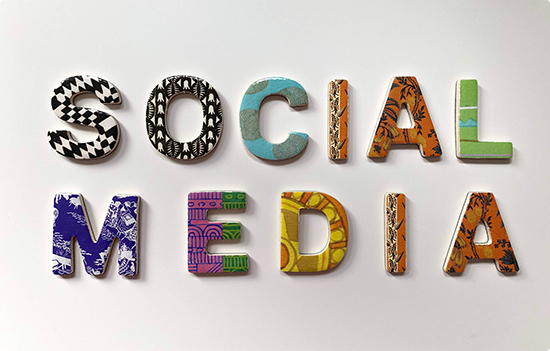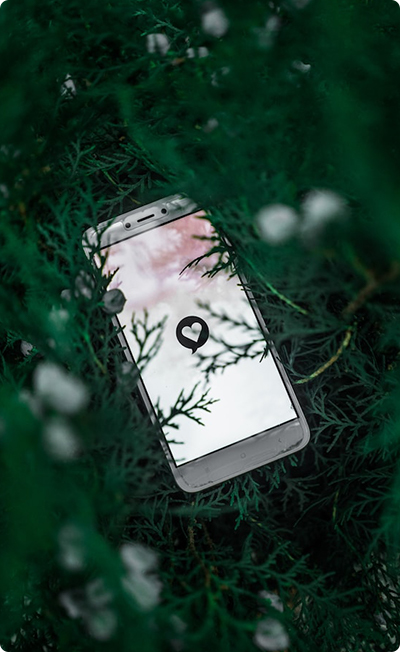Social Media Book Advertising
We live in an era where almost everyone is engaged on social media in some form or another, with the average
person spending close to 2.5 hours on social media
a day! Due to this, social media is an indispensable tool for self-published authors to market their books. These
platforms offer a plethora of opportunities to reach a broader audience, engage with readers, and even sell directly.
Depending on your genre and target audience, some platforms may be more effective than others for social media book
advertising. Here, we'll explore how to leverage popular social media platforms for your social media book
advertising.
Facebook: Harnessing the Power of Community for Genre-Specific Book Promotion
For self-published authors, particularly those in popular genres like romance, mystery, or fantasy, Facebook provides
a rich ecosystem for marketing. With its broad user demographic and the availability of specialized groups, you can
easily find your niche and interact with potential readers. Facebook Ads also allow you to target specific audiences
for paid promotions.
Tips for Marketing Your Book Publishing on Facebook
- Create a separate Facebook Page solely dedicated to your book publishing and writing career, ensuring a
professional space separate from your personal account where readers can follow for updates, book releases,
and other author-related news. (It also prevents you from annoying friends and family on your personal feed).
- Establish a dedicated Facebook Group for your fans and readers, giving them an exclusive platform for
discussions, feedback, and first-hand news, strengthening your community and fostering long-term loyalty.
- Utilize Facebook Ads to reach a tailored audience, specifically targeting demographics such as age,
interests, and behaviors that align with your book's genre or topic.
- Maintain a consistent posting schedule, sharing content like book excerpts, cover reveals, and
behind-the-scenes insights to keep your audience captivated and informed about your book's progress and
offerings.
- Interact with your fans in real time by leveraging Facebook Live for Q&A sessions, book readings, and
interactive discussions, enhancing reader engagement and adding a personalized touch to your online
presence.
- Monitor the effectiveness of your posts by using Facebook's analytics tools, allowing you to adjust
your marketing strategies based on real-world data like engagement rates and audience demographics.
- Join and actively participate in Facebook Groups that align with your book's subject matter, offering
valuable insights and comments that can indirectly promote your book and establish your expertise in the
field.
LinkedIn: Navigating Business Networking for Book Publishing Success
LinkedIn is a fantastic platform for self-published authors, especially those focusing on business, non-fiction,
and academic genres. It's a hub for professionals, making it an ideal place to connect with potential readers
already in a mindset geared towards learning and professional development.
Tips for Marketing Your Book Publishing on LinkedIn
- Craft a detailed and descriptive title for your LinkedIn profile, including your status as an author
and the genre or topics you specialize in, to immediately communicate your expertise and offerings when
you interact on the platform.
- Maximize your profile's searchability by filling it out comprehensively; include your career history,
awards, and especially the 'Publications' section, where you can highlight your books and provide direct
links to purchase or learn more.
- Engage in LinkedIn Groups relevant to your book's subject matter, as these are often active and offer
a platform to establish yourself as an authority; you can answer questions, share insights, and gradually
make people aware of your book.
- Maintain a consistent posting schedule, sharing content like book excerpts, cover reveals, and
behind-the-scenes insights to keep your audience captivated and informed about your book's progress and
offerings.
- Leverage LinkedIn's advanced search features to identify and connect with key decision-makers or
influencers in your genre or industry, increasing the odds of striking beneficial partnerships or
gaining meaningful endorsements.
- Regularly share valuable content through LinkedIn’s news feed, including blog posts, articles, or
other resources related to your book, keeping you in the minds of your connections.
Instagram: Visual Storytelling for Every Genre
Instagram is a visually-driven platform that offers a unique way to engage readers. Its visual nature
makes it ideal for genres that can benefit from striking imagery, such as travel, lifestyle, cooking, and even
fantasy. However, even if your book is more text-heavy, you can still leverage Instagram by using compelling
visuals that relate to your book's themes, characters, or settings.
Tips for Marketing Your Book Publishing on Instagram
- Optimize your profile by including a captivating bio, a high-quality profile picture, and a direct
link to your book or website to create a seamless experience for potential readers.
- Implement a thoughtful hashtag strategy by creating a unique hashtag for your book and incorporating
other popular book-related hashtags to enhance the visibility of your posts.
- Strategically plan your visual content by mixing images, short videos, and Instagram Stories to
showcase various aspects of your book, such as behind-the-scenes looks, character insights, and promotional
snippets.
- Make a conscious effort to interact with your followers by responding to comments, liking and commenting
on their posts, and encouraging more interaction via questions or small contests to create a thriving
community.
- Regularly monitor key performance indicators through Instagram Insights to gauge the success of your book
publishing posts, understand your audience better, and refine your content strategy accordingly.
Twitter and Twitter-Like Platforms: Expanding Your Reach Beyond Mainstream Social Media
Twitter has long been a stalwart in the social media space, often lauded for its real-time updates and global reach.
However, it has recently become controversial for various reasons, including privacy concerns and spreading
misinformation. Self-published authors who find Twitter's environment less than ideal might want to consider
Twitter-like platforms that offer
similar functionalities but with nuanced differences. These platforms can be particularly beneficial for genre-specific
authors looking to connect with a more targeted audience.
Tips for Marketing Your Book Publishing on Twitter-Like Platforms
- Use relevant hashtags that align with your book, genre, or writing style to tap into existing online communities
and trends, thereby increasing the visibility of your work.
- Actively engage in Twitter chats or equivalent discussions on alternative platforms, which are timed, organized
conversations that allow you to network with other authors, readers, and experts in your genre.
- Keep an eye on trending topics within your genre or related fields and contribute to the conversation meaningfully,
taking the opportunity to subtly promote your book or author brand.
- Utilize social media scheduling tools to post regular updates, but ensure you also engage in real-time interactions
to respond to comments, questions, or messages, striking a balance between automation and authentic engagement.
Using Every Avenue to Succeed as a Self-Published Author
Navigating the landscape of book publishing as a self-published author can be challenging, but it's considerably less
so when you leverage the power of social media book advertising. The platforms discussed here offer unique and genre-specific
ways to engage with your audience, build your brand, and, ultimately, sell more books. The key is not just to be present
on these platforms but to use them wisely and consistently. If done well, social media can dramatically affect your success
as an author, transforming you from a writer to a thriving entrepreneur in the literary world. Make social media your ally,
and watch your book sales and engagement soar.








